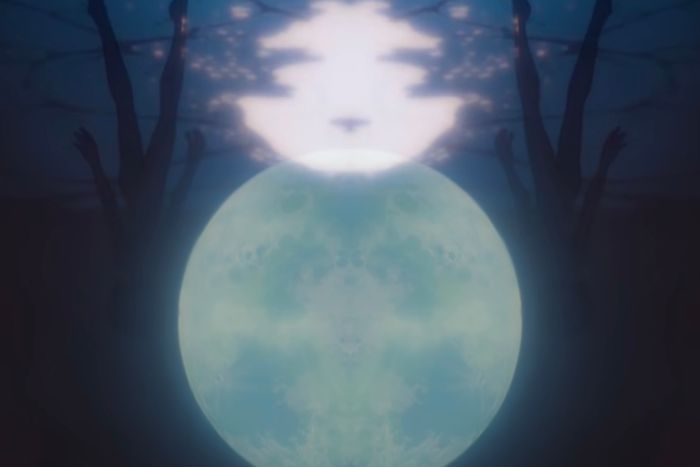
The Scarlett Johansson–Channing Tatum vehicle Fly Me to the Moon may be blasting off in theaters today, but I have other plans. Instead, I’m going to listen to 26 versions of the song the movie is named after — and much like the film, it will still evoke awkward sexual tension, government conspiracy, technological arms race, and dewy-eyed musical cues. Real heads already know: I speak of the giant robot anime Neon Genesis Evangelion.
In 1995, director Hideaki Anno launched his influential anime series, one that seeded a vast merchandising empire, several spinoff films, and a world-spanning fandom. To cap off each episode, Anno took the unusual route of rolling the credits not over an original composition, like Evangelion’s bouncy opener “A Cruel Angel’s Thesis,” but over multiple covers of Bart Howard’s jazz standard, “Fly Me to the Moon.” Karaoke-style takes are mixed in. There’s an “Acid Bossa” version, multiple “Orchestra” versions, two “Bossa Techno” takes, several in the voices of the series’ characters, and several versions by the English vocalist Claire Littley, who in my mind beats Ol’ Blue Eyes as the song’s canonical voice. Since her version first played after the end of “Episode 01: Angel Attack,” the ending has proven a fascinating case of anime musical supervision — and the limits of international song licensing.
Evangelion’s outros quickly became an anime classic in their own right, both in Japan and when it was first imported to the United States. While the show’s primary version of the song was sung by Littley, other versions were sung by the Japanese singer Yoko Tahashi and the show’s primary female voice actresses — sometimes as soloists, sometimes as a trio — complementing the events of the series throughout. The outro of “Episode 08: Asuka Strikes!” is bathed in a red filter and plays over a sped-up “Aya Bossa Techno” version of “Fly Me to the Moon” sung by Asuka’s voice actress Yuko Miyamura, punching home the episode’s grim reveal and that character’s introduction. “Fly Me to the Moon” serves as both Evangelion’s spine, holding up the often harrowing episodes that precede them, and its thematic parting shot — a recurring reminder that this show about robots and mythical beasts was made by humans.
It’s unfortunate that you can’t experience those 26 versions of “Fly Me to the Moon” as Anno originally intended. Outside Japan, the outros have been swapped for some lilting piano — casualties of the prohibitively expensive cost of licensing the song internationally. (Fans got so pissed about this when Evangelion hit Netflix that when GKIDS put a Blu-ray out two years later, the latter had to warn customers ahead of time that it was working with the same versions.) You can only stream the Evangelion outros in a supercut posted to YouTube — and it’s, uhhhh, not exactly legal, I should add. But if they end up jailing me for watching it, it will have been worth it.


